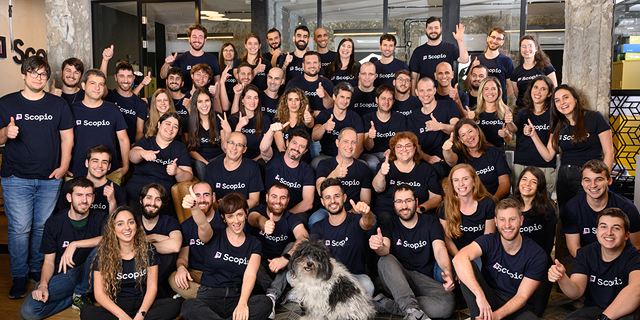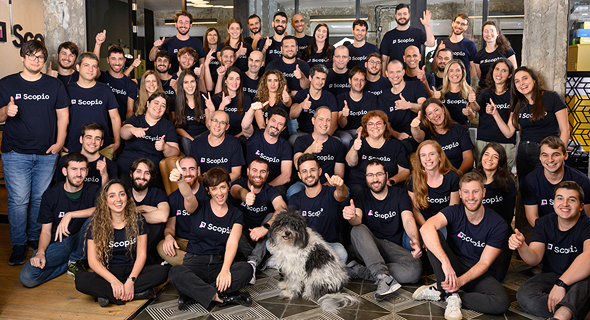
Scopio Labs raises $50 million Series C for digital microscope
The Israeli company's device creates new information that was not available until now thanks to the development of advanced computational photography technology that allows for the first time a fast scan of large surfaces at the highest resolution in the world
In a conversation with Calcalist, Itai Hayut, the company's CEO and one of its co-founders said: "Most of the tests that a doctor sends a patient to do have not changed in recent years. All blood tests are still based on a person counting white cells. In the 21st century, people shouldn’t be looking through microscopes, manually counting cells. We do complete digitization of the sample in the scanner we developed. A digital file of the image is produced and in the file it sees all the blood cells. The expert who diagnoses it can sit anywhere in the world and our tools make it possible to do an analysis of the information and not just decision support systems.
"The system is not as limited as humans are and it makes it possible to derive much more from the samples such as early detection and monitoring of these diseases. It is a revolution in how blood tests are done today. There are a lot of radiology and CT companies that have calculated the test procedure but those companies are fundamentally different from us in that although they already have digitization, as far as blood and cells they have a technical problem because they require much greater resolution. We have spent years digitizing and producing a digital microscope that produces an image in resolution."
Blood tests are one of the most important and common tools in the medical diagnosis process and billions of tests are performed every year around the world. But today, the processes of deciphering blood samples in the world are still mostly carried out manually by looking through a microscope and sorting cells by type, to detect abnormalities that could indicate cancers or other diseases. Although attempts have already been made to integrate digital technologies in the hematological field, the solutions have been limited to analysis of a small number of cells regardless of the whole of the sample. This means the loss of vital information found in the sample and therefore in many cases one is forced to return to the manual microscope to reach the required clinical conclusion. Just as digital maps, such as Google Maps, have changed the world of navigation, so too Scopio Labs' digital scanner is revolutionizing the world of hematology. Scopio's device creates new information that was not available until now, thanks to the development of advanced computational photography technology that allows for the first time a fast scan of large surfaces at the highest resolution in the world. Using Scopio's platform you can dive into the scan, move within it and decipher the test at a high level of sharpness. It also allows lab staff and hematologists to send the scans to colleagues and perform consultation quickly and from anywhere. Thanks to the unique digital information that Scopio creates, it is also possible to integrate decision-support tools based on artificial intelligence based on decoding tools that enable automation and streamlining of the process. The company's flagship product, the Full Field Peripheral Blood Smear Application (FFM-PBS), is approved by the U.S. FDA and the European CE and is currently being applied in hematology laboratories around the world. Scopio Labs is working to bring more AI applications to market, including the world's first application for bone marrow sampling (Bone Marrow Aspirate).